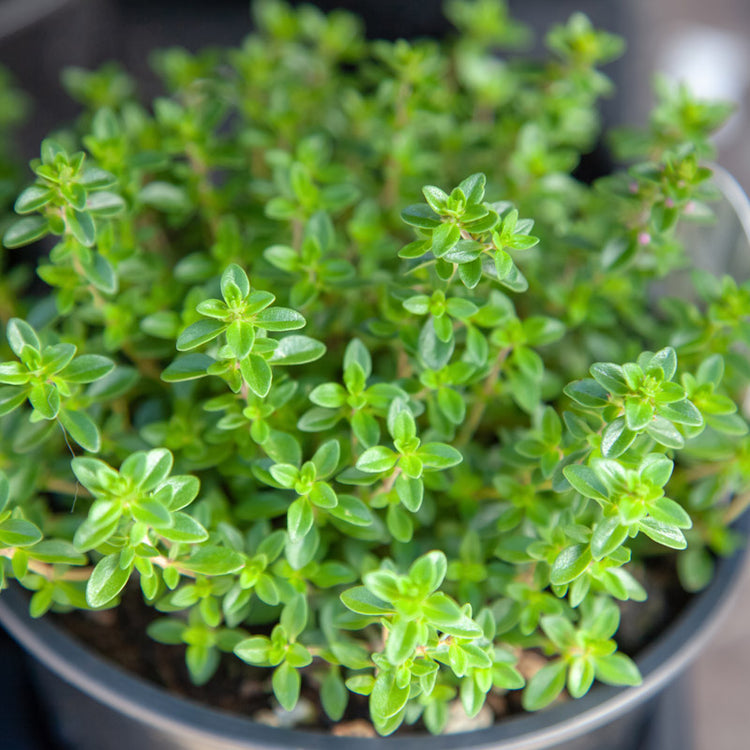
Varieties and Growing Tips
Thyme, a fragrant and versatile herb, is a beloved addition to gardens and kitchens worldwide. Whether you're a seasoned gardener or a novice, thyme seeds offer an exciting opportunity to cultivate this flavorful herb at home.
Varieties of Thyme Seeds
Thyme comes in various cultivars, each with its unique flavor profile and growth characteristics. Here are some popular thyme seed varieties that you can find on the linked website:
-
Common Thyme (Thymus vulgaris): This variety is the classic choice for culinary applications. It boasts a robust flavor and is a staple in Mediterranean and French cuisines. Common thyme is known for its aromatic leaves and is a perfect addition to roasted meats, stews, and soups.
-
Lemon Thyme (Thymus citriodorus): With its delightful lemony scent, lemon thyme is a refreshing twist on the traditional thyme. This variety adds a citrusy zing to your dishes, making it an excellent choice for seafood, salads, and marinades.
-
Creeping Thyme (Thymus serpyllum): Creeping thyme is a low-growing variety that serves as a fantastic ground cover or border plant. Its delicate purple flowers are visually appealing and attract pollinators to your garden. This variety is often used in rock gardens and between stepping stones.
-
French Thyme (Thymus vulgaris 'French'): French thyme is another culinary favorite, prized for its rich and earthy flavor. It pairs exceptionally well with roasted vegetables, meats, and sauces. Its compact growth habit makes it suitable for container gardening.
-
Silver Edge Thyme (Thymus vulgaris 'Silver Edge'): This variety stands out with its striking silver-edged leaves, adding a decorative touch to your garden. The leaves have a mild, aromatic flavor, making it a delightful garnish for various dishes.
Tips for Growing Thyme from Seeds
Growing thyme from seeds is a rewarding experience that allows you to savor the freshest flavors in your culinary creations. Here are some essential tips to get you started:
-
Choosing the Right Soil: Thyme thrives in well-draining soil with a slightly alkaline pH. Ensure good drainage to prevent root rot and waterlogged soil.
-
Sunlight Requirements: Thyme loves full sun, so provide at least 6-8 hours of direct sunlight daily for optimal growth and flavor development.
-
Planting Depth: Sow thyme seeds shallowly, approximately 1/4 inch deep, and keep them evenly spaced to allow proper air circulation.
-
Germination Time: Depending on conditions, Thyme seeds can take 7 to 21 days to germinate. Keep the soil consistently moist but not waterlogged during this period.
-
Transplanting: Once your thyme seedlings have developed a couple of true leaves, transplant them into the garden or larger containers, spacing them about 12 inches apart.
-
Pruning and Harvesting: Regularly trim your thyme plants to encourage bushier growth and prevent them from becoming woody. Harvest leaves as needed throughout the growing season.
-
Overwintering: Thyme is generally a hardy herb, but in colder regions, consider mulching or bringing potted thyme indoors during winter to protect it from harsh frost.
-
Pest and Disease Management: Thyme is relatively pest-resistant, but be on the lookout for aphids and spider mites. Use organic pest control methods if necessary.
Conclusion
Thyme seeds offer an exciting opportunity to grow this versatile herb in your garden, providing an abundance of fresh flavors and aromas for your culinary adventures. Whether you prefer the classic common thyme or want to experiment with unique varieties like lemon or silver edge, cultivating thyme from seeds is a rewarding endeavor. By following proper planting and care guidelines, you can enjoy a bountiful harvest of this aromatic herb year-round, elevating the taste of your favorite dishes with its distinct flavor. Happy gardening and bon appétit!